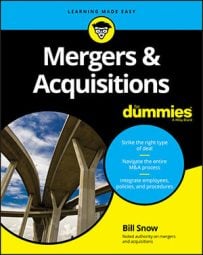Both Buyer and Seller beware when it comes to the tax consequences of any M&A transaction. Taxing corporations is complicated because you have two basic types of entities (C-corps and S-corps/LLCs), two types of business sales (asset or stock), and three types of taxes (corporate, individual, capital gains). Both should consult a tax advisor, but this is a brief overview of the issues.
A C-corp’s profits are taxed at the corporate tax rate, and then any distributions to ownership are taxed again, this time at either the owner’s marginal tax rate or at the capital gains rate.
The S-corp offers the benefit of removing a layer of tax and avoiding double taxation. The profits of the entity flow to the owners. The owners must pay tax on the income, usually at their marginal income tax rate.
One of the limitations of S-corps, though, is that they’re limited to 100 shareholders while C-corps have no limits to the number of shareholders. LLC’s are similar to S-corps (with some different terminology) for taxation purposes, but check with your tax advisor about some subtle differences.
But the tax issues don’t stop there; selling a business opens another can of tax worms. The following table helps break down how a business sale affects the business’s taxation:
Sellers need to plan ahead and speak with their tax advisors. Your specific tax situation depends on your company’s specific situation.
An owner who converts a C-corp to an S-corp shortly before a sales transaction may be in for another nasty little tax surprise: In some cases the conversion from a C-corp to an S-corp may take ten years before the owner is able to realize the full tax benefit. Ideally, conversion to an S-corp should take place years before the owner sells the company.

